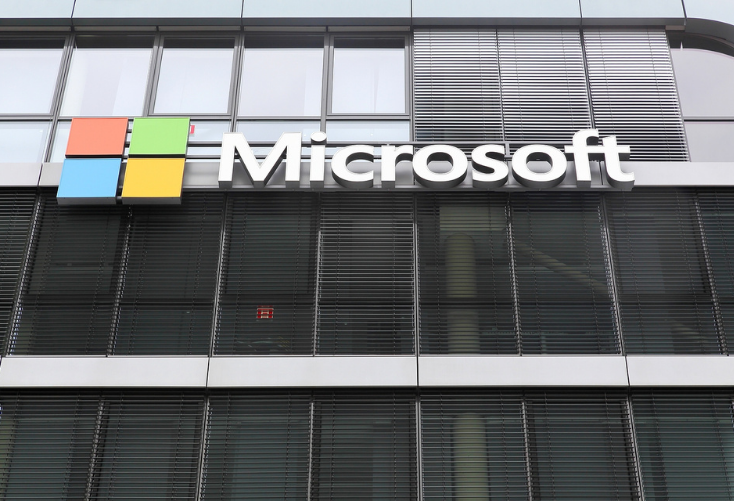Hand selected flexible workspace news from the most reliable sources to keep you ahead of the pack. We find all the latest news, so you don’t have to. Morning and afternoon updates. Stay in the know.
Here’s what you need to know today:
- Tech Workers Want A Flexible Future NEW
- How The Office Sector Can Make A Comeback NEW
- Workers Are Trickling Back Into The Office NEW
- Microsoft Leans Into Flexible Work Policies
- Flexible Work Is Becoming The Standard
- Bill Gates Predicts The Future Of Work And Business Travel
Tech Workers Want A Flexible Future
Companies have transitioned to remote work policies as the pandemic rages on, and many are ready to make this commitment in the long-term.
Remote working was once reserved for a small portion of white-collar knowledge workers, but thanks to advancements in technology, it is now accessible to a wider range of professionals.
It appears that remote working is having a significant impact on tech workers in particular. For instance, Twitter, Slack and Microsoft have all announced that they will be embracing flexibility or remote working for the foreseeable future.
“If we say that everyone must return to the office, or we expect people to, and one of our competitors says you can work remotely, who wouldn’t take the second option there?” said Stewart Butterfield, CEO of Slack.
According to research from Indeed, 96% of tech workers believe remote working is here to stay and 86% said they prefer this arrangement thanks to increased flexibility.
The survey also revealed that this transition will help improve workplace diversity in terms of disability, gender and race/ethnicity.
Even more outstanding is that six out of ten tech workers said they would be willing to take a pay cut if that meant they could continue to work from home.
However, remote working is still not the ideal solution for some workers, who have expressed that working at home has made it harder to collaborate and socialize.

How The Office Sector Can Make A Comeback
The 2020 U.S. presidential election has had a ripple effect across the world as Joe Biden emerged victorious against the incumbent.
Real estate in particular is now expected to make a comeback after experiencing low levels of capital, according to Dr. Richard Barkham, global chief economist and head of Americas Research at CBRE.
“From an economic perspective, what happens in the US quite often happens one quarter later in the UK,” said Barkham.
Each recession over the past two decades has had ‘specific casualties’. In 2000, it was the tech industry; in 2008, it was banks; and in 2020, it appears to be the real estate and the office sector.
However, this anticipated uptick in transactions is contingent upon a vaccine becoming available to the public in the first half of next year.
In September, the UK government began making major changes to development rights. For instance, the Town and Country Planning (Use Classes) Order 1987 (UCO) has created a ‘Class E’ of development rights that group together non-residential businesses, such as retail and leisure. This means that a store can change to a gym, then an office and back without planning approval.
“Much of the urban renaissance that we have seen in the western world, including the UK, has been based around office-using employment,” said Barkham. “We have been on the back of a really long wave of office growth. I don’t think it is about to go into reverse, but it could be about to go into a plateau phase and a reimagination of the usage of that space.”

Workers Are Trickling Back Into The Office
Although remote working has become standard for many people, some companies are seeing their workers slowly come back into the office.
At Downtown Austin Alliance, around 30% of workers are coming through the office, according to Vice President Michele Van Hyfe. However, she added that they were still seeing office space going up for sublease.
Hyfe said that leasing activity in downtown Austin is a quarter of pre-pandemic levels, but is still optimistic that the office sector will make a comeback after a vaccine is widely distributed.
According to Pradhdeep Singh, global head of marketing at WeWork, companies will likely look towards adopting a hybrid work arrangement to support both in-office and at-home work in the future.
WeWork has adapted to reduced occupancy of their spaces by offering a new service called WeWork On Demand, which allows users to book office space on an hourly basis.
“We saw a lot of mothers actually who needed to get out of the house,” said Singh. “Some even brought their kids to WeWork. We saw teachers who needed a space to do their virtual classes that was more professional. So it was just all of these unique and interesting use cases that came.”

Microsoft Leans Into Flexible Work Policies
Microsoft is leaning into flexible work policies as COVID-19 cases hit record numbers and a vaccine for the general public remains months away.
“Flexibility can mean different things to each of us, and we recognise there is no one-size-fits-all solution given the variety of roles, work requirements and business needs we have at Microsoft,” said Kathleen Hogan, Executive Vice President and Chief People Officer at Microsoft. “To address this, we have provided guidance to employees to make informed decisions around scenarios that could include changes to their work site, work location, and/or work hours once offices are open without any COVID-19 restrictions. Our step-by-step guidance includes considerations like office space, salary and benefits, local law, personal taxes, expenses and more.”
Microsoft’s guidance covers the physical workspace, which is still a necessity for some employees. However, for the majority of roles at the company, Microsoft views working from home less than 50% of the time to be the new norm.
Additionally, work schedule and location flexibility will also be seen as standard for most jobs both part-time and full-time. While the amount of flexibility a worker gains depends on their position, Microsoft hopes this can facilitate honest conversations between managers and team members about what does and does not work for them.

Flexible Work Is Becoming The Standard
The world’s largest work-from-home experiment has been underway for the better part of the year, and people are gaining insight into what life could look like with increased flexibility on a permanent basis.
At the start of the pandemic, many companies made the choice to cut down on working hours to prevent furloughs or layoffs. This move left employers and employees reevaluating the necessity of traditional 9 to 5 structures.
“People are starting to view it as a way to take back control of their time, that they can do good work still, but just construct their weeks or months differently,” said Tom Amies-Cull, global operations officer, media at Dentsu Aegis.
Allowing workers to choose reduced hours could be financially beneficial for organizations, while also attracting a more diverse talent pool. In fact, some business leaders have said that some employees are requesting to keep reduced hours to achieve a better work-life balance.
For instance, 10% of advertising agency M&C Saatchi’s workforce are part-time, but CEO Camilla Kemp anticipates that number to increase next year as demand for flexibility grows.
Despite common misconception, M&C Saatchi has not seen a dip in productivity despite the increased amount of part-time positions.
Although part-time working is not a one-size-fits-all approach, it is opening up the possibilities of flexible work arrangements that can easily be adapted to meet an employee’s preference.

Bill Gates Predicts The Future Of Work And Business Travel
Bill Gates, founder of Microsoft, believes that the impact the pandemic has had on office work and business travel is here to stay.
In an interview with Andrew Ross Sorkin at the New York Times DealBook conference, Gates explained “that over 50% of business travel and over 30% of days in the office will go away.”
Moving forward, Gates predicts that business travel that requires someone to physically meet with someone else will have a very high threshold.
He added that he has experienced some of the downsides of working from home, such as the lack of socialization and meeting new people. Gates says he believes there’s a window of opportunity for software to support run-ins after meetings.
Many tech companies have already made the commitment to allowing their employees to work from home forever, while others have opted for a more hybrid approach, such as Microsoft itself.


















